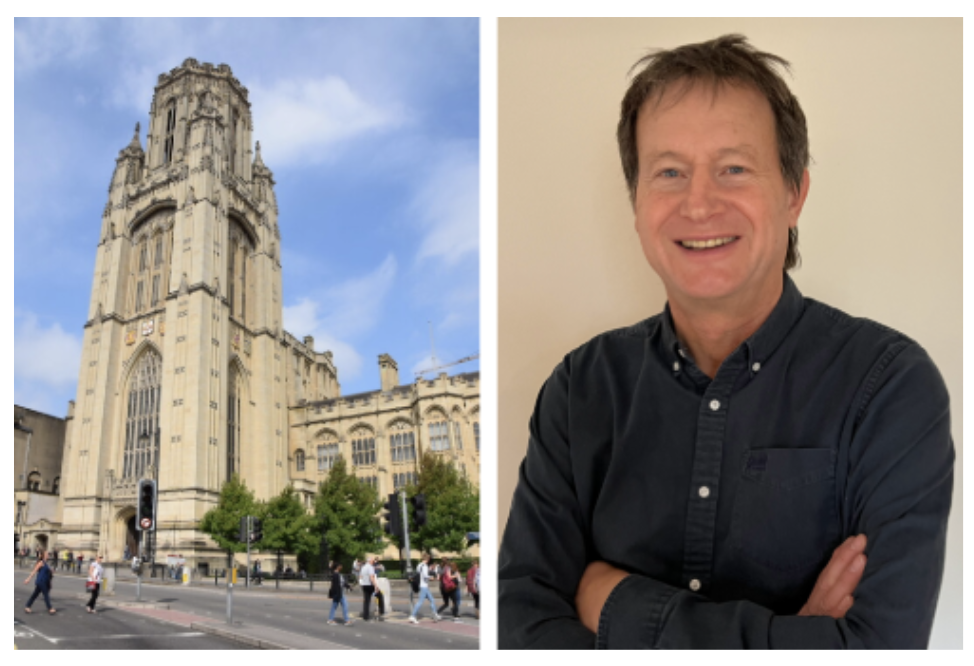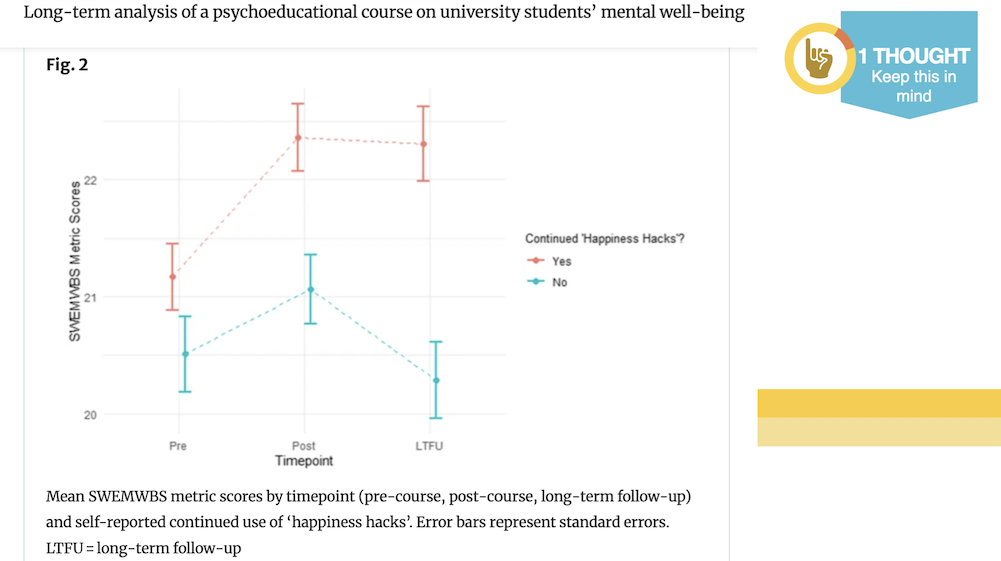
Bristol University’s happiness course and 7 things they found that help keep it up
At a recent Habitmakers meet-up we discussed Bristol University’s course the Science of Happiness, and what we can learn about elevating our feeling of wellbeing and then keeping it up.
Habits and happiness being my bias, I took away two things away.
Firstly, Professor Bruce Hood*, who runs the 10-week course and was involved in an important study following up students after two years, says a lot of self-help gets it wrong.
To feel good, turn your gaze from your self to those around you. Regular activities with others: groups, choirs, clubs… all get us interacting and that makes us feel good.
Secondly, two years after attending a course that typically increases a measure of happiness by 10 to 15% in those joining it, it’s the 51% who turn some of what they learn into habits that maintain the benefits.

But the backdrop to what seems such an awesome initiative – a happiness course – is bleak.
In a 2018 study of 37,500 students (Pereira et al., 2018), one in five report a mental health diagnosis and a full 88% report feelings of anxiety. The same year, a study at 14 UK universities found that most of 12,730 students surveyed reported feeling anxious and depressed (Union Futures Project, 2018).
I guess you can imagine that comparable studies during and after the COVID pandemic which followed did not lead to an improvement in wellbeing.
At Habitmakers, we didn’t set out to have the focus on happiness we have today.
Neither did we intend that transcending a limited (selfish) concept of self and turning our gaze outwards would be so central.
What we found was that creating habits means overcoming our inner resistance to keeping them. And that this resistance itself resides in a very limited and constrained idea of personal identity. Our personal self.
Einstein called it an “optical illusion of consciousness” in which we’re separate, alone, frail and opposed to others. In later life, Abraham Maslow added the pinnacle step of self-transcendence, taking the slot in his pyramid of human needs previously given to self-actualisation.
Put simply, habits are best done together. And happiness is supported by togetherness. It is the self that craves and is averse, as the buddhists put it. And that craving and aversion that keeps us bound to the wheel of suffering.
So that’s why today, as as rather wonderful step towards habitmaking, we teach Efffortless Habits®.
It was the most striking aspect of the evaluations of our recent Best Year Ever 24 course. Not the millions of start-up finance raised by one participant, not the new job managing 100 people of another, or the PhD funding approved for another.
But the feelings of wellness, happiness, being relaxed and having time despite doing more – and being generous with that newly won time.
7 things that increase happiness
So the seven things the students did during the course and then made habits of to stay happy?
- Less self-care. More “share your joy and connect with others”
- Gratitude (writing letters/listing three things)
- meditating and/or keeping a journal
- Sleep hygiene
- Exercise
- Regular activities… choir, groups, connecting
- Getting out in nature
And if you’re curious about Bristol University and Professor Hood, he has a book out! Brand new. With a more complete list as well. It’s called The Science of Happiness.
Why happiness promotes habitmaking and vice versa
Habitmakers is a journey in keeping habits that bring the life we want closer. We offer courses and a membership
Happiness is front and centre-stage because our approach recognises three elements: Intention, Resistance and Support.
When we work directly with the second pillar, resistance, we learn to let go – a mindfulness practice that is a direct path to joy and peace.
